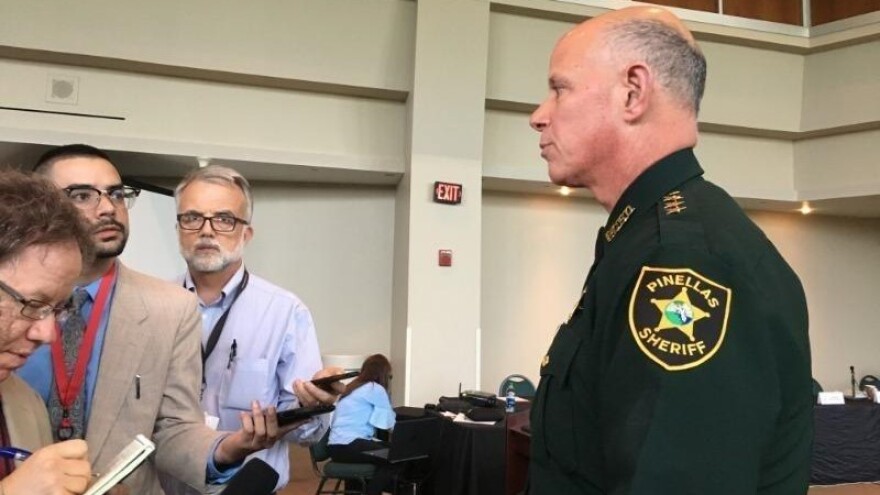A prominent sheriff and a Miami police oversight panel are backing a challenge to an appeals-court ruling that could help shield the identities of law-enforcement officers involved in use-of-force incidents.
Pinellas County Sheriff Bob Gualtieri and the Miami Civilian Investigative Panel this week said they plan to file friend-of-the-court briefs at the Florida Supreme Court in a dispute about whether a 2018 constitutional amendment known as “Marsy’s Law” can prevent the release of officers’ names.
Marsy’s Law bolstered victims’ rights, and a three-judge panel of the 1st District Court of Appeal ruled last month that privacy protections in the constitutional amendment can apply to two Tallahassee police officers. Those officers argued they were victims because they were threatened in incidents that resulted in use of force.
One of the incidents drew national attention, as an officer identified in court documents as “John Doe 2” shot a Black transgender man, Natosha “Tony” McDade, in May 2020. Because the police officer was the victim of an aggravated assault with a deadly weapon in the incident, he contends he had the right under Marsy’s Law to prevent release of his name.
The city of Tallahassee filed a notice May 4 that was a first step in challenging the appeals-court ruling at the Supreme Court. Gualtieri and the Miami oversight panel plan to file briefs backing the city’s position that Marsy’s Law should not apply to the officers.
A document filed Wednesday by Gualtieri’s attorneys said a police officer “who shoots and kills another is not a ‘victim’ of that shooting and cannot invoke Marsy’s Law to shroud his shooting in secrecy.”
Along with being sheriff of one of the state’s largest counties, Gualtieri has led a commission that probed the 2018 mass shooting at Marjory Stoneman Douglas High School in Broward County and is a past president of the Florida Sheriffs Association.
“That a use of force is justified does not shield the identity of the person using it from public view,” Gualtieri’s attorneys wrote in the document. “Here, the appeals court misconstrued the plain text of Marsy’s Law by expanding it to suppress the identity of a police officer who shot and killed another person.”
Meanwhile, the Miami panel said the appeals-court ruling could affect its work investigating allegations of police misconduct.
“In light of the First District’s decision, the CIP (the Civilian Investigative Panel) expects it will be asked to withhold the identity of an officer under investigation,” attorneys for the panel said in a document filed Tuesday at the Supreme Court. “Honoring such requests, though, would undermine the CIP’s function of providing an open, public forum in which grievances may be addressed.”
The Supreme Court has not indicated whether it will take up the case, which was initially filed by the Florida Police Benevolent Association against the city of Tallahassee. The Police Benevolent Association represents the two officers.
Marsy’s Law addresses a series of issues related to victims’ rights, including offering privacy protections. Nearly 62 percent of voters approved the measure in 2018.
In the April 6 appeals-court decision, Judge Lori Rowe wrote that nothing in Marsy’s Law “excludes law enforcement officers --- or other government employees --- from the protections granted crime victims.”
Rowe, joined by Judges Timothy Osterhaus and Robert Long, wrote that a police officer “meets the definition of a crime victim” under Marsy’s Law “when a crime suspect threatens the officer with deadly force, placing the officer in fear for his life.”
But opponents of the ruling contend that it would undermine the state’s open-records laws. The appeals court reversed a decision by then-Leon County Circuit Judge Charles Dodson, who in July found that the “explicit language of Marsy’s Law was not intended to apply to law enforcement officers when acting in their official capacity.”
Dodson said the case involved balancing victims’ rights with the “public’s right to hold government accountable by inspecting public records” and ordered the city to release the names of the two officers.



